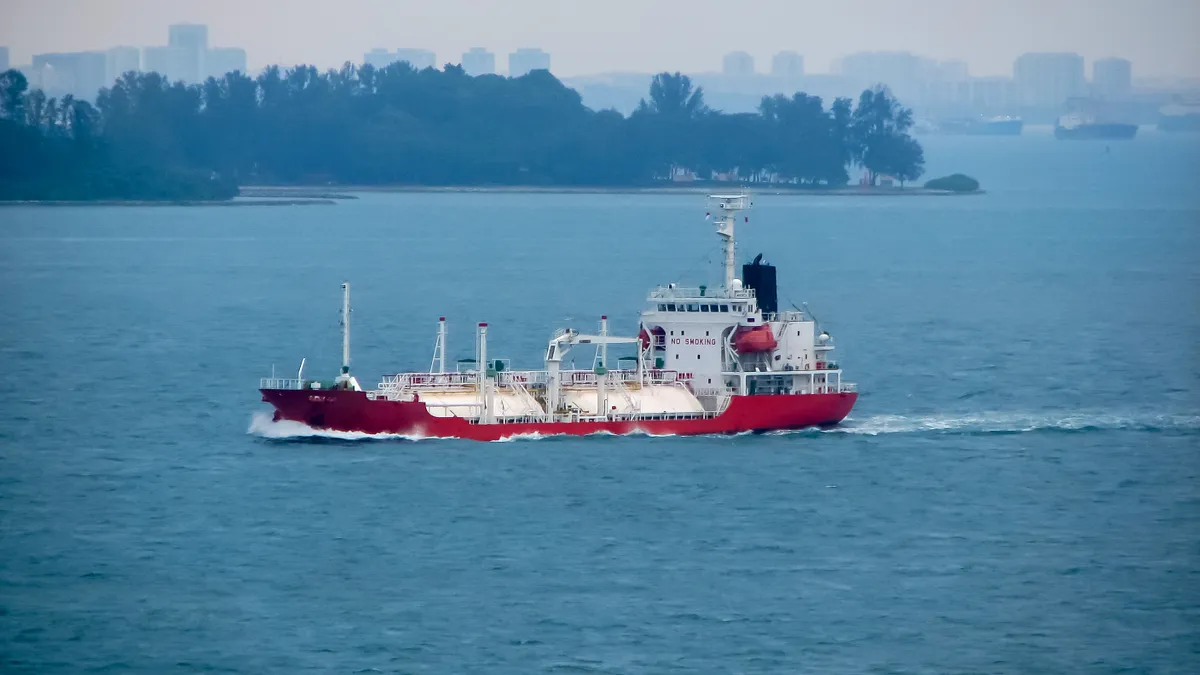The New England energy system faces natural gas supply constraints that could threaten electric grid reliability this winter. It is an issue that has existed for years, and one that federal regulators have struggled with before.
At an all-day technical conference on Thursday in Vermont, the Federal Energy Regulatory Commission heard more than two dozen regional stakeholders discuss New England’s gas woes. The discussion followed in the footsteps of a similar meeting FERC hosted 10 years ago in Boston.
“It's shocking and terrifying how close the notes and the talking points we had for that one could be reflected today,” Dan Dolan, president of the New England Power Generators Association, said at the event.
Few solutions emerged, as a variety of stakeholders laid out their perspectives.
“We've been talking about energy security for a very long time in New England,” Maine Public Utilities Commission Chair Philip Bartlett II said. “We have come up with a lot of solutions ... and then as soon as we do, we just start talking again about the energy security problem and what we need to do to fix it.”
The key question, Bartlett and others said, is how much “insurance” the region needs to buy in terms of investment in new energy resources. “I think we're in this situation because we haven't carefully defined and come up with a way to measure ... energy security or energy adequacy,” he said.
ISO New England published a problem statement in August floating the idea of an “energy reserve” to ensure grid reliability and continued access to liquefied natural gas at Constellation Energy’s Everett LNG terminal.
“It could be a very, very expensive proposal,” Bartlett said. “That may be well worth the investment, if it's going to make a serious contribution to resource adequacy. But if it's not, then obviously we don't want to do it.”
Vermont Department of Public Service Commissioner June Tierney urged stakeholders not to discount the potential of demand-side management, and pointed to California’s use of distributed storage to reduce grid stress.
“Let us not underestimate the people of New England,” Tierney said. “If they’re called upon to reduce their demand immediately ... they will respond.”
The New England ISO is committed to adding renewables and storage, said Gordon van Welie, president and CEO of the grid operator. He cautioned, however, against moving too quickly.
The ISO published its Future Grid Reliability Study in July, and modeled a variety of decarbonization scenarios in 2040. The report concluded those approaches “may require a significant amount of gas or stored fuels to support variable resources.”
The region “needs to be careful not to retire needed, existing infrastructure, until we are sure it is not needed,” van Welie said. “And that's not what we're doing at the moment. We're retiring infrastructure on the hope that new infrastructure will be replacing it.”
“We’re going into this winter basically crossing our fingers and hoping,” FERC Commission James Danly said. He questioned if FERC can issue a Section 206 finding under the Federal Power Act, directing the ISO or another party to secure gas supplies.
An FPA Section 206 proceeding could result in FERC setting new terms in the New England capacity market and directing the ISO to ensure sufficient fuel is procured.
The region needs about an additional 20 Bcf of LNG to cover the risk of insufficient supplies this winter, van Welie said. “But my guess is you’re going to tell me the Federal Power Act does not authorize you to do that,” he responded to Danly.
In the event FERC does issue a 206 finding, van Welie urged commissioners, “please do not issue a 206 unless you issue it with clear guidance. ... This is such a complicated issue if you issue a 206 you will shut down communication between the parties.”
Federal regulators say they understand what is at stake. FERC Chairman Richard Glick pointed to the impacts of winter storm Uri, which hit Texas in February 2021.
“A couple hundred people died in the United States because they lost electricity, and that’s just unfathomable,” Glick said. “It's very important that we not just have these conferences, pat ourselves on the back and go home and not do anything, because the stakes are too high.”






















